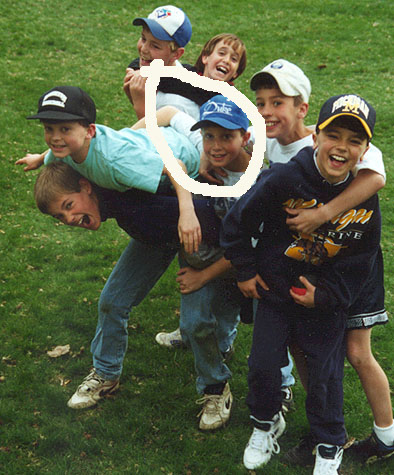“Nobody cares about art”
David Cowan paid a visit to Casa Dorsey a few days ago, since we missed him when we were doing our one annual vacation last month in Southern California where our son and daughter both work now. I’ve known David since he was about knee-high, one of my son’s lifelong friends who has moved to L.A. to seek his fortunes as a screenwriter. He was back in Rochester visiting family and friends and stopped in to catch up. He’s bearded now, wears cool shoes, and comes up with about 250 new ideas for movies in the course of a week. Talk to him for ten minutes and he’ll get out his phone and jot a movie idea that has somehow accidentally slipped out of your mouth as some tangential comment about life. He’s an excellent writer, but that doesn’t guarantee anything in the game he’s playing. It’s all about the high concept and the story. You can let the other hired help punch up your script with those annoying details like realistic courtroom terminology or medical nomenclature. (Why bother getting granular with the details when, if you send an entire novel to somebody in Hollywood, you’ll see a dozen movies spun off of it over the next six years—sufficiently changed to avoid litigation of course.) You can’t own an idea. So how screenwriters actually make a living is something apparent only to that disembodied eye at the top of the pyramid on the back of a dollar bill.
Cowan’s genuinely funny, too. He had a sardonic piece about Kanye published in the New Yorker’s Shouts and Murmurs department not too long ago. He’s also had some short skits, Sex Therapy, written with his friend Joey Power, produced and posted at Funny or Die. So, after half an hour of catching up, I asked whatever happened to that witty screenplay he’d shown me about the art world, Picasso Schmicasso, which he’d co-written with Power. It was an amusing take on what artists will do to succeed, and it started with a quote I loved, from Picasso: “Every child is an artist. The problem is how to remain one once we grow up.” Word! Can I say word at my age, with my ethnicity and with that uncool exclamation point? Hm, I named this blog represent. So, hell yeah!
So I asked him whatever happened to the script. “My agent liked it. Everyone she showed it to liked it. Nobody bought it.” Sounded familiar: it’s wonderful, but . . . Everyone praised the screenplay for its wit, its dialog, the story, the structure, you name it. So why didn’t anyone bite? Maybe because they probably photocopied all the bits they liked for use elsewhere and then handed it back? No, she had a different angle.
“She told me, Nobody cares about art.”
Most people with a career in art will sneer and dismiss those four words. Don’t distract me with the opinions of the Philistines! Who cares! But there’s as much truth in his agent’s perspective on his rejections as there was in the screenplay itself. Just four words, a wonderfully blunt and unambiguous declaration, nobody cares about art. It serves as a powerful reproach that ought to be printed out and posted everywhere anyone makes or sells visual art. It’s the koan every artist ought to be trying to solve, instead of worrying about fame, money, exhibition histories, reviews, honors or tenure. Why the hell doesn’t anyone care about what you do? I guarantee, the vast majority of people don’t.

Nobody. Kinda thing I would say, and then have to backtrack on.
Fortunately there is somebody. Who? Who knows?
The making, at least for me, is not about anyone else caring. It’s about following the almost invisible thread that has, for some reason, intrigues me more than anything else. Then, with what I have as a result, try to make a living.
A business model? No, more of a nightmare. So I try to stay aware of the business side, but not let it interfere too much with my little invisible thread.
But not nobody. Fortunately there’s a few somebodies. Maybe not enough for a movie audience, but a painting only needs one person to want to look at it
Of course I agree. Tons of people care, but as a percentage of the population I would wager than far fewer than forty or fifty years ago. The invisible thread is a great metaphor. That’s exactly how it feels. But the sense of significance you get as you paint–the sense I get, I mean–has to contend with the knowledge of how few will probably share it. That’s the challenge of visual art, compared to write a screenplay or being a rock star or writing Catcher in the Rye. The question I want to keep asking is whether or not I’m painting in a way that the common viewer, like the old idea of the “common reader”, would appreciate and possibly love. I wonder how many artists ask themselves that as they paint. And I think that’s where a line like that comes from: the sense so many people have of being locked out of what art has become in so many cases. So they quit caring.
[…] 319, he interviews cartoonist, Loren Bouchard, about his life and briefly their conversation gets truthful about the life of painting in a way I love, on principle, even though I hate hearing the truth. Always. (I much prefer the […]